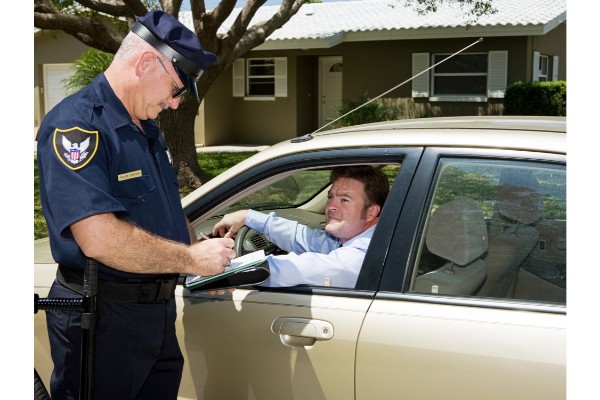Do You Have to Answer a Police Officer’s Questions?

When you get pulled over at a traffic stop or brought in to the police station, the police officers will ask you a variety of questions. You do not have to answer any of these questions if you decide not to do so. The Fifth Amendment to the U.S. Constitution protects you.
What Is the Fifth Amendment?
The Fifth Amendment states that no one “shall be compelled in any criminal case to be a witness against himself … without due process of law”. This means that police officers cannot force you to answer questions, because you might incriminate yourself by answering. The same goes for court testimony – you cannot be forced to testify if doing so might incriminate you.
How Do You Use the Fifth Amendment?
At a traffic stop, you can simply remain silent, or you can tell the police officer that you are invoking your Fifth Amendment right to remain silent. Keep in mind that staying totally silent will probably infuriate the police officer. You will most likely get arrested. However, this might be to your benefit in a DUI or drug case. Saying something could reveal slurred words or confused responses that the prosecutor could use against you later in court.
What Is a Miranda Warning?
If the police officer is arresting you at the traffic stop, he or she should give you a Miranda warning. This warning gets its name from several famous cases in which the defendants were detained, asked questions, and even signed incriminating statements without being alerted of their rights and without access to lawyers. Now, police officers have to tell you that you have the right to remain silent, that you have the right to consult with an attorney and have the attorney present during questioning, and that you have the right to have an attorney appointed if you cannot afford one.
To learn more about Constitutional rights in DUI cases, seek out the DUI attorney who follows key changes in Oklahoma and national law to find the best defenses for his clients. Clint Patterson, Esq., of Patterson Law Firm, a former Tulsa prosecutor now using his trial experience and expert-level knowledge of DUI science to defend drivers, has the experience and the insight to evaluate the strengths and weaknesses of your case. To schedule a case evaluation, visit Patterson Law Firm online or call Clint’s office at (918) 550-9175.

